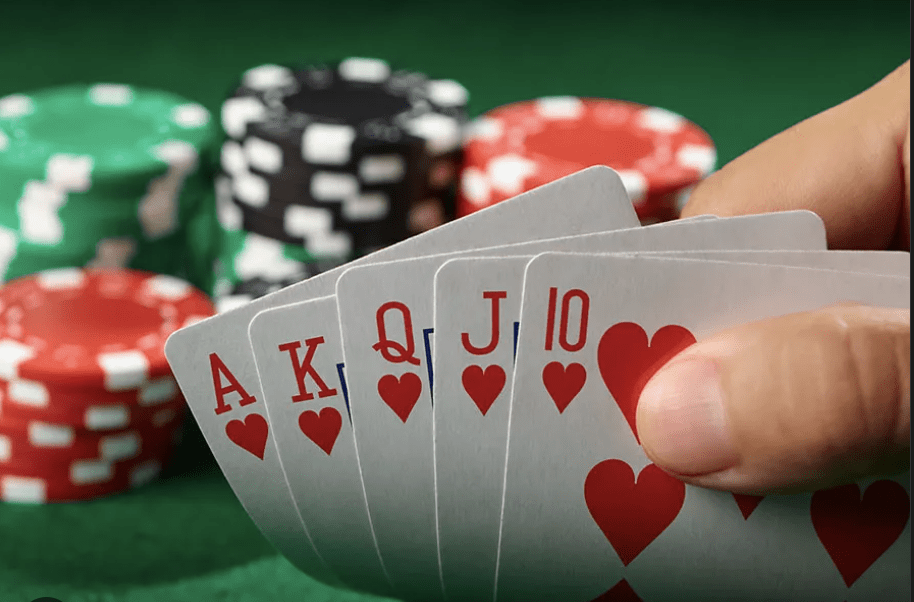Texas Hold’em Poker is a game of chance, played using a standard 52-card deck without jokers, created in the early 1900s in Texas by an unknown creator, though it began gaining popularity in Vegas casinos in the 1960s. Poker is somewhat unique in the context of other games of chance and probability, such as slots or roulette, in the sense that it involves more skills than simply chance – reading your opponents, having some level of control (in terms of when you back out or when you stay in, as well as how much money you put into the pot), and notably, actually being a zero-sum game: unlike games like roulette and slots, where there is always a house edge, in poker, the net profit of all human players will be 0, meaning that it is not “rigged” for the house. While these might make it favorable and more attractive to “skilled players” compared to these other games of chance and probability, it still can be very addictive, and is actually considered one of the more addictive casino games. The randomness aspect feeds into addiction in this case by continually convincing players that their “good hand” is just around the corner, and that if they wait long enough and play it correct, they can win big; in reality, however, no “best” hand is ever guaranteed for a given player, no matter how skilled they think they are.
The “near miss” concept introduced in the reading comes into play here, though perhaps in a different sense than in other games such as slots. While slots often displays “near misses” in the sense of almost enough icons lining up, a “near miss” in poker might be construed as, for example, a really good starting hand that just happened to synergize poorly with the 5 common cards shown on the table. During our playtest, there were several points at which at least one person stayed in way too long because they had a good starting hand (for example, a king and an ace), only to find that the hand didn’t amount to anything because the pool cards worked poorly with their hand. In some ways, this type of “near miss” plays on a player’s own confidence and their perceived understanding of the game: players may believe that they “know the probabilities” based on their starting hand, and may become overconfident that they should “trust the probabilities”, thus staying in and refusing to fold far longer than they actually should. A “fear of missing out” aspect is also present in poker that may not be present in other chance games like slots. With slots, while a player may have a misguided “feeling” that they would have won if they had rolled one more time, in poker this feeling can actually be realized: even after exiting a round, players can see how their hand would have performed had they stayed in; there were several times where I folded early on what I saw as a bad hand (example being a 5 and an 8), only to realize that I would have won the pot had I stayed in.
Of course, poker is arguably one of the most skilled games of chance – knowing how to read opponents’ tells, and when is the best time to cut one’s losses and drop out versus stay in the hand. And assuming equally skilled players at a table, everyone’s chance of winning is equal over a theoretically infinite period of time; there is no house “rigging” as there might be in other games, where they control the probabilities of all outcomes. Even so, it may be this aspect of skill that makes poker one of the most addictive games of chance – it implies, falsely, that if you’re just good enough, you’ll always come out on top, when in fact each individual hand is simply mostly up to chance.




